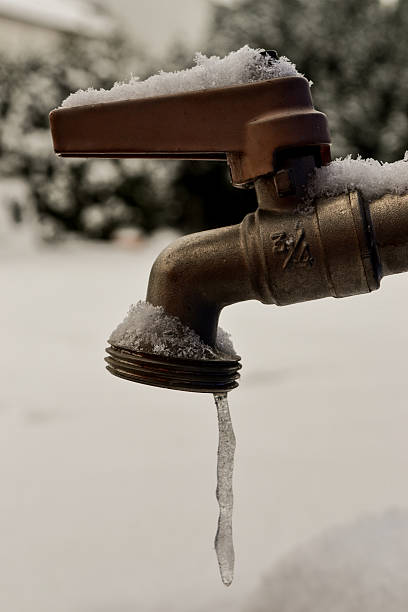Avoiding Frozen Pipes in Cold Weather: Essential Advice
Apply NowWhat're your thoughts and feelings on Preventing and dealing with frozen pipes?

Cold weather can damage your pipes, especially by freezing pipelines. Right here's exactly how to avoid it from happening and what to do if it does.
Intro
As temperature levels decline, the threat of icy pipes increases, possibly leading to costly repair services and water damage. Recognizing exactly how to stop icy pipelines is important for property owners in chilly climates.
Avoidance Tips
Protecting vulnerable pipelines
Cover pipelines in insulation sleeves or use heat tape to shield them from freezing temperatures. Focus on pipes in unheated or exterior areas of the home.
Home heating methods
Maintain indoor rooms adequately heated, particularly locations with plumbing. Open cabinet doors to permit warm air to distribute around pipes under sinks.
How to recognize icy pipes
Search for decreased water circulation from faucets, uncommon smells or sounds from pipelines, and noticeable frost on subjected pipelines.
Long-Term Solutions
Structural adjustments
Take into consideration rerouting pipes far from exterior walls or unheated locations. Add additional insulation to attic rooms, basements, and crawl spaces.
Upgrading insulation
Buy high-quality insulation for pipes, attics, and walls. Appropriate insulation assists maintain regular temperatures and reduces the threat of frozen pipes.
Shielding Outside Pipes
Garden tubes and outdoor taps
Disconnect and drain pipes yard hoses prior to winter season. Mount frost-proof faucets or cover exterior taps with protected caps.
Recognizing Frozen Pipes
What triggers pipes to ice up?
Pipelines freeze when revealed to temperature levels below 32 ° F (0 ° C) for expanded durations. As water inside the pipelines freezes, it expands, taxing the pipeline walls and potentially triggering them to break.
Threats and damages
Icy pipes can lead to water interruptions, home damages, and pricey repair services. Ruptured pipes can flood homes and trigger comprehensive architectural damage.
Signs of Frozen Water Lines
Identifying icy pipes early can stop them from rupturing.
What to Do If Your Pipelines Freeze
Immediate activities to take
If you presume icy pipelines, maintain faucets open up to ease stress as the ice thaws. Utilize a hairdryer or towels soaked in warm water to thaw pipelines slowly.
Verdict
Stopping frozen pipelines calls for positive procedures and quick actions. By understanding the causes, signs, and safety nets, home owners can safeguard their pipes throughout cold weather.
Helpful Tips to Prevent Frozen Pipes this Winter
UNDERSTANDING THE BASICS: WHY PIPES FREEZE AND WHY IT’S A PROBLEM
Water freezing inside pipes is common during the winter months, but understanding why pipes freeze, and the potential problems it can cause is crucial in preventing such incidents. This section will delve into the basics of why pipes freeze and the associated problems that may arise.
THE SCIENCE BEHIND FROZEN PIPES
When water reaches freezing temperatures, it undergoes a physical transformation and solidifies into ice. This expansion of water as it freezes is the primary reason pipes can burst. As the water inside the pipe freezes, it expands, creating immense pressure on the walls. If the pressure becomes too great, the pipe can crack or rupture, leading to leaks and water damage.
FACTORS THAT CONTRIBUTE TO PIPE FREEZING
Low Temperatures: Extremely cold weather, especially below freezing, increases the risk of pipes freezing. Uninsulated or Poorly Insulated Pipes: Pipes located in unheated areas, such as basements, crawl spaces, or attics, are more prone to freezing. Insufficient insulation or lack of insulation altogether exacerbates the problem. Exterior Wall Exposure: Pipes running along exterior walls are susceptible to freezing as they encounter colder temperatures outside. Lack of Heating or Temperature Regulation: Inadequate heating or inconsistent temperature control in your home can contribute to frozen pipes. PROBLEMS CAUSED BY FROZEN PIPES
- Pipe Bursting: As mentioned earlier, the expansion of water as it freezes can cause pipes to burst, resulting in significant water damage.
- Water Damage: When pipes burst, it can lead to flooding and water damage to your property, including walls, ceilings, flooring, and personal belongings.
- Structural Damage: Prolonged exposure to water from burst pipes can compromise the structural integrity of your home, leading to costly repairs.
- Mold and Mildew Growth: Excess moisture from water damage can create a favorable environment for mold and mildew growth, posing health risks to occupants.
- Disrupted Water Supply: Frozen pipes can also result in a complete or partial loss of water supply until the issue is resolved.
WHY CERTAIN PIPES ARE MORE PRONE TO FREEZING
- Location: Pipes located in unheated or poorly insulated areas, such as basements, crawl spaces, attics, or exterior walls, are at higher risk of freezing.
- Exterior Pipes: Outdoor pipes, such as those used for irrigation or exposed plumbing, are particularly vulnerable to freezing as they are directly exposed to the elements.
- Supply Lines: Pipes that carry water from the main water supply into your home, including the main water line, are critical to protect as freezing in these lines can affect your entire plumbing system.
- Underground Pipes: Pipes buried underground, such as those connected to sprinkler systems or outdoor faucets, can be susceptible to freezing if not properly insulated.
https://busybusy.com/blog/helpful-tips-to-prevent-frozen-pipes-this-winter/

Hopefully you enjoyed reading our section on 6 Ways to Prevent Frozen Pipes. Thank you so much for taking the time to browse our article. Remember to take a moment to promote this content if you enjoyed reading it. Bless you for your time. Don't forget to check up our site back soon.
Book 24/7